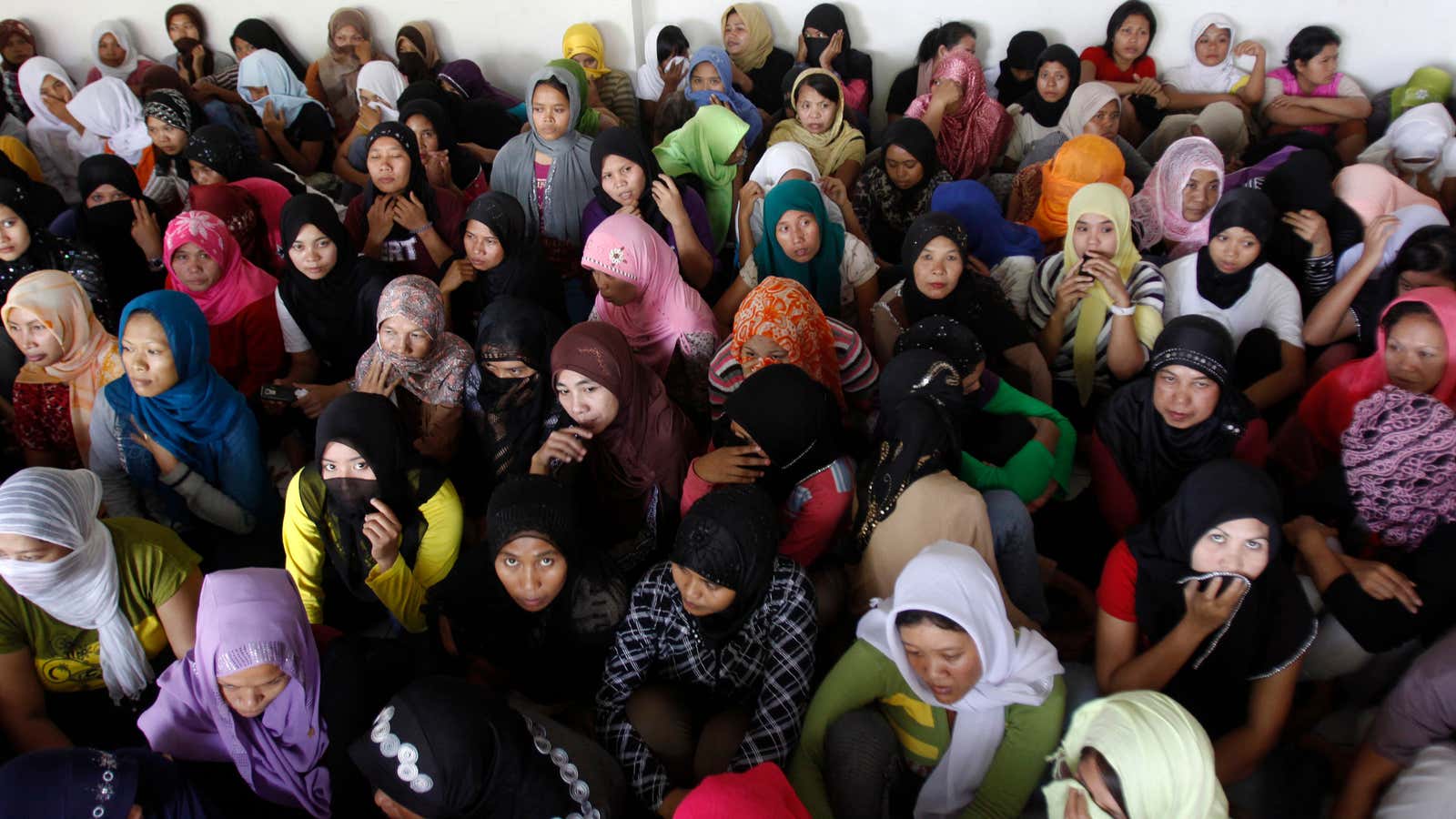For many people around the world, new rules to protect rights of migrant domestic workers in Saudi Arabia may seem about as basic as human rights come.
The guidelines state that employers must give workers one day off per week, a nine-hour break between shifts, salaries without delay, suitable accommodations and paid sick leave. Those are improvements, but the rights of foreign workers will still be extremely limited. An example: the labor ministry said that workers will not “have the right to reject a work, or leave a job, without a valid reason.” As for vacations, workers will be entitled to one month’s paid leave after putting in two years of work. There are about eight million foreign workers in the oil-rich kingdom, but the actual number of domestic workers, the majority of whom are foreign, is not available.
Growing awareness about ill-treatment of domestic workers in recent years has triggered international outcry and pushed countries like Philippines, Indonesia, Nepal and Kenya to impose restrictions on their citizens migrating to Saudi Arabia for domestic work. New York-based Human Rights Watch documented a range of abuses including forced confinement, food deprivation, and psychological, physical and sexual abuse.
Saudi Arabia’s harsh legal system adds to migrant workers’ woes. Arbitrary arrests, unfair trials and harsh punishments are common. In January, there were more than 45 foreign maids facing execution on death row. Amnesty International notes that court proceedings fall far short of international fair trial standards, with defendants on many occasions being denied formal representation by a lawyer. In many cases, the accused are not even informed about the progress of the proceedings against them. The kafala sponsorship system, which ties migrant workers’ residency permits to employers, is another concern. Employees need the written consent of employers to change jobs or leave the country.
Saudi Arabia is in the process of a larger crackdown on illegal foreign workers, and has given immigrants until November 3 to obtain legal status in the kingdom.
